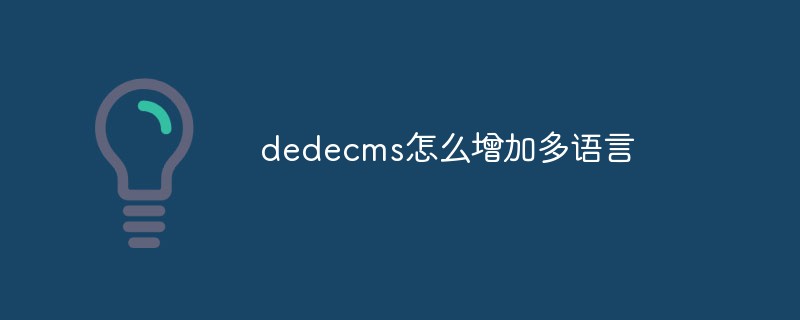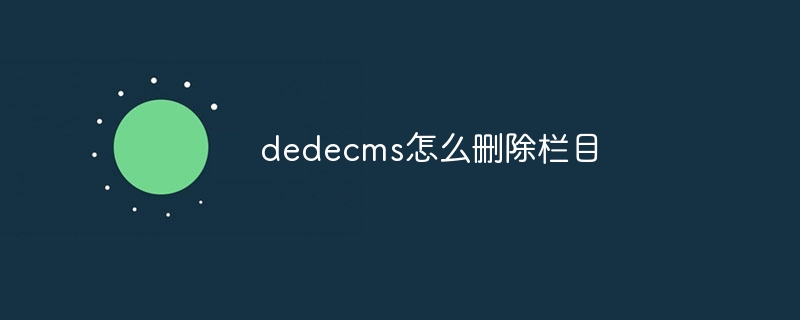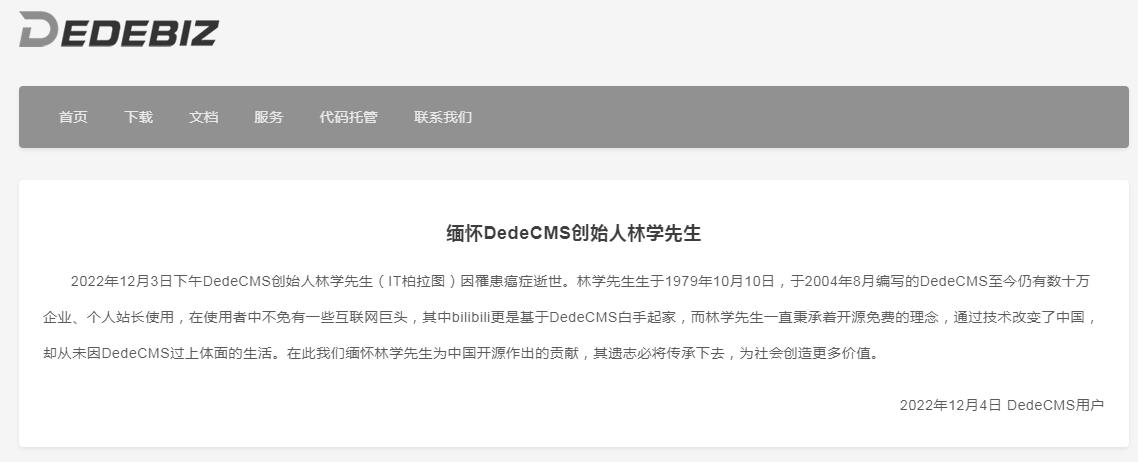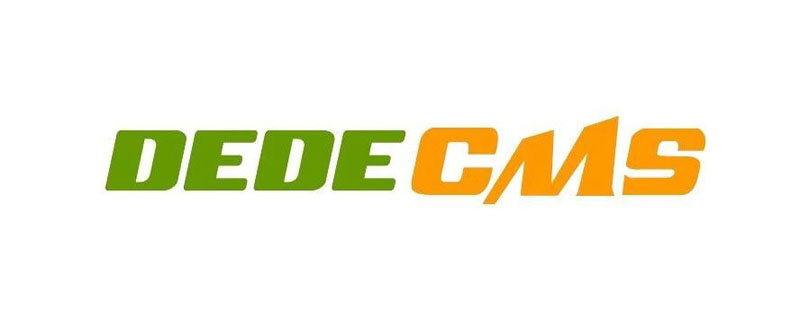
How to set up DedeCms security settings?
1. Directory permissions
We do not recommend that users set the column directory in the root directory. The reason is that it will be very troublesome to set up security in this way. By default In the case of , after the installation is completed, the directory settings are as follows:
(1) data, templets, uploads, a or 5.3 html directory, set read-write, non-executable permissions;
(2) If you do not need a special topic, it is recommended to delete the special directory. If you need to, delete special/index.php after generating HTML and set the directory to read, write, and non-executable permissions;
(3) The include, member, plus, and background management directories are set to executable scripts, which are readable but not writable (if additional modules are installed, the book, ask, company, and group directories are also set in the same way).
Recommended study: 梦Weavercms
2. Other issues that need attention
(1) Although the install directory has been It has been strictly processed, but for security reasons, we still recommend deleting it;
(2) Do not directly use the MySQL root user permissions on the website. Set up an independent MySQL user account and permissions for each website. For:
SELECT, INSERT , UPDATE , DELETE CREATE , DROP , INDEX , ALTER , CREATE TEMPORARY TABLES
Since DEDE does not use stored procedures anywhere, be sure to disable FILE, EXECUTE, etc. permissions to perform stored procedures or file operations.
In addition, you need to pay attention to the fact that neither IIS nor Apache should add .php and .inc files to mime, otherwise the system will prohibit downloading of these files.
Password replacement: f297a57a5a743894a0e4 admin
The above is the detailed content of How to set up DedeCms security settings. For more information, please follow other related articles on the PHP Chinese website!
 dedecms怎么增加多语言Feb 27, 2023 am 09:21 AM
dedecms怎么增加多语言Feb 27, 2023 am 09:21 AMdedecms增加多语言的方法:1、进入dedecms后台,创建封面栏目;2、将封面栏目“常规选项”的文件保存目录设置为cn或者en;3、将封面栏目“高级选项”的列表模板设置为“cn_index.htm”或者“en_index.htm”;4、单独调用每种语言的封面栏目和每种语言下的导航栏目即可。
 织梦cms是什么语言写的Feb 21, 2023 am 09:45 AM
织梦cms是什么语言写的Feb 21, 2023 am 09:45 AM织梦cms是用PHP语言写的。织梦CMS(DedeCMS)是一个PHP开源网站管理系统,作用是构建中小型网站;它采用PHP+MySQL技术开发,可同时使用于windows、linux、unix平台。
 dedecms是什么语言Feb 24, 2023 am 09:46 AM
dedecms是什么语言Feb 24, 2023 am 09:46 AMdedecms是PHP语言开发的;dedecms中文全称是织梦内容管理系统,是一个PHP开源网站管理系统;dedecms基于PHP和MySQL技术开发,可同时使用于Windows、Linux、Unix平台。
 dedecms有移动端吗Mar 02, 2023 am 09:30 AM
dedecms有移动端吗Mar 02, 2023 am 09:30 AMdedecms有移动端,其移动端安装方法是:1、将DATA移到根目录外的安全设置,修改“/m/index.php”代码;2、在“更新主页HTML”中,将“选择主页模板”改为“default/index_m.htm”;3、将首页“图文资讯”的url修改为移动端链接;4、设置移动站可通过二级域名访问即可。
 dedecms怎么删除栏目Jul 13, 2023 pm 04:31 PM
dedecms怎么删除栏目Jul 13, 2023 pm 04:31 PMdedecms删除栏目的方法:1、登录后台管理;2、进入“栏目管理”,可以看到当前网站所有栏目;3、选择要删除的栏目;4、将鼠标悬停在栏目名称上,删除栏目;5、点击“确认”按钮以继续删除操作;6、删除成功。
 dedecms缩略图报错怎么办Feb 27, 2023 am 09:32 AM
dedecms缩略图报错怎么办Feb 27, 2023 am 09:32 AMdedecms缩略图报错的解决办法:1、将windows目录设置为user读权限;2、将“windows/Temp”设置为user读写权限;3、找到php.ini中的“upload_tmp_dir”目录,然后去掉前面的分号;4、设置地址,赋予user读写权限即可。
 DedeCMS创始人林学(IT 柏拉图)逝世Dec 05, 2022 am 11:54 AM
DedeCMS创始人林学(IT 柏拉图)逝世Dec 05, 2022 am 11:54 AM12 月 3 日下午,DedeCMS 创始人林学(IT 柏拉图)因罹患癌症逝世。林学生于 1979 年 10 月 10 日,于 2004 年 8 月编写的 DedeCMS 至今仍有数十万企业、个人站长使用。
 2023年织梦dedeCMS视频教程推荐Oct 25, 2019 pm 01:56 PM
2023年织梦dedeCMS视频教程推荐Oct 25, 2019 pm 01:56 PM织梦内容管理系统(DedeCMS) 以简单、实用、开源而闻名,是国内最知名的PHP开源网站管理系统,也是使用用户最多的PHP类CMS系统,在经历多年的发展,目前的版本无论在功能,还是在易用性方面,都有了长足的发展和进步。


Hot AI Tools

Undresser.AI Undress
AI-powered app for creating realistic nude photos

AI Clothes Remover
Online AI tool for removing clothes from photos.

Undress AI Tool
Undress images for free

Clothoff.io
AI clothes remover

AI Hentai Generator
Generate AI Hentai for free.

Hot Article

Hot Tools

Dreamweaver CS6
Visual web development tools

Notepad++7.3.1
Easy-to-use and free code editor

Safe Exam Browser
Safe Exam Browser is a secure browser environment for taking online exams securely. This software turns any computer into a secure workstation. It controls access to any utility and prevents students from using unauthorized resources.

SublimeText3 English version
Recommended: Win version, supports code prompts!

ZendStudio 13.5.1 Mac
Powerful PHP integrated development environment





